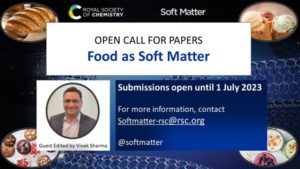 Tal Cohen is an Associate Professor at MIT. She joined the Department of Civil & Environmental Engineering in November 2016 and has a joint appointment in the Department of Mechanical Engineering. She received both her MSc and PhD degrees in Aerospace Engineering at the Technion in Israel. Following her graduate studies, Tal was a postdoctoral fellow for two years at the Department of Mechanical Engineering at MIT and continued for an additional postdoctoral period at the School of Engineering and Applied Sciences at Harvard University. She received the ONR young investigator award and the NSF CAREER award in 2020, and the ARO young investigator award in 2019. Earlier awards include the MIT-Technion postdoctoral fellowship, and the Zonta International Amelia Earhart Fellowship. Her research is broadly aimed at understanding the nonlinear mechanical behavior and constitutive sensitivity of solids. This includes behavior under extreme loading conditions, involving propagation of shock waves and dynamic cavitation, material instabilities, and chemo-mechanically coupled phenomena, such as material growth.
Tal Cohen is an Associate Professor at MIT. She joined the Department of Civil & Environmental Engineering in November 2016 and has a joint appointment in the Department of Mechanical Engineering. She received both her MSc and PhD degrees in Aerospace Engineering at the Technion in Israel. Following her graduate studies, Tal was a postdoctoral fellow for two years at the Department of Mechanical Engineering at MIT and continued for an additional postdoctoral period at the School of Engineering and Applied Sciences at Harvard University. She received the ONR young investigator award and the NSF CAREER award in 2020, and the ARO young investigator award in 2019. Earlier awards include the MIT-Technion postdoctoral fellowship, and the Zonta International Amelia Earhart Fellowship. Her research is broadly aimed at understanding the nonlinear mechanical behavior and constitutive sensitivity of solids. This includes behavior under extreme loading conditions, involving propagation of shock waves and dynamic cavitation, material instabilities, and chemo-mechanically coupled phenomena, such as material growth.
Find more about her work via:
Website: http://tal-cohen.wixsite.com/website
Twitter: @CohenMechGroup
Read Tal Cohen’s Emerging Investigator article http://xlink.rsc.org/?doi=10.1039/D2SM01675C
Our current research
We are interested in understanding how materials behave when they are pushed to their extremes; whether by imposing large deformations, by applying dynamic loading conditions, or by growth. Closely related to experimental observations, our research exploits analogy with related fields and accounts for complex material response, with the overarching goal to derive theoretical models that can significantly affect our understanding of the observed phenomena, but are still simple enough to be applied in design or characterization of materials. We are a theoretical group with an experimental lab that by basic material fabrication and mechanical testing allows us to make observations and to validate our theories.












